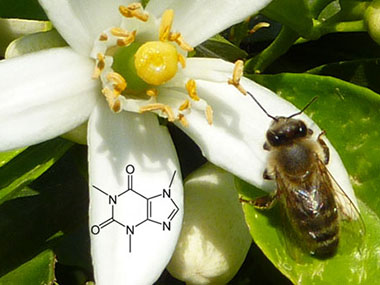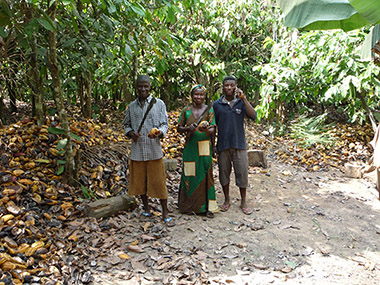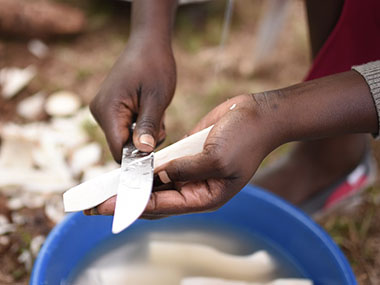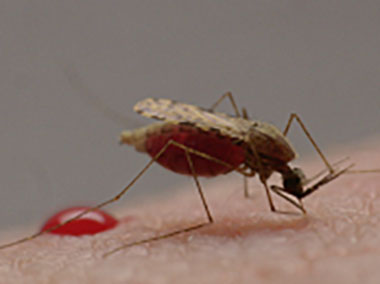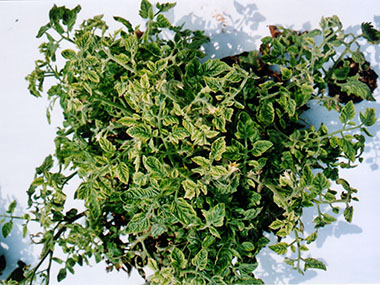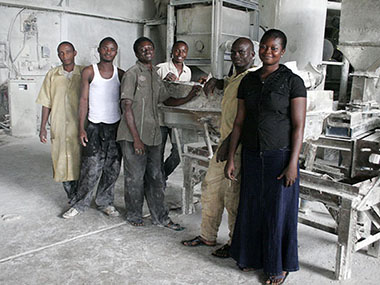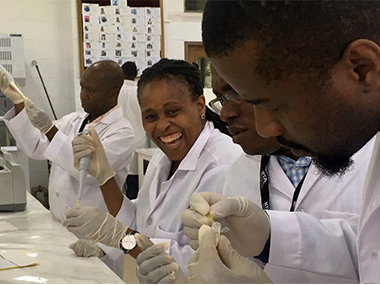Centre for Society, Environment and Development
NEW: NRI is now eligible to host ESRC-funded Doctoral Studentships on topics related to Climate, Environment and Development. For further details see here.
UNDER CONSTRUCTION – TO BE EXPANDED
The Centre for Society, Environment and Development (CSED) within NRI facilitates social-scientific and interdisciplinary research and knowledge exchange on key issues of global development. This will include increasing understanding of, and developing solutions for:
- the impacts of climate change on the rural poor, their opportunities for adaptation, and what fair climate change mitigation policies would look like
- gender inequalities in the Global South and the other inequalities that intersect with them
- processes of innovation and learning within smallholder agriculture so as to sustainably increase productivity, food security and livelihood security
- state fragility and conflict in the Global South and their causal linkages to climate vulnerability environmental degradation and food insecurity,
as well as developing new approaches from political ecology and the analysis of culture to understand these and other social and environmental challenges.
CSED builds on the world-leading research done by NRI social scientists on critical challenges facing the globe, and in particular poor people in the Global South. This involves using our advanced methodological expertise, quantitative, qualitative and participatory, and our first-hand experience in research in Africa, Asia and Latin America. We are committed to interdisciplinary and transdisciplinary collaboration, both within the social sciences and between the social and the natural sciences. We have the vision of synthesising our research into world-leading publications, while engaging with policy-makers, civil society and citizens of the Global South and contributing to public debates.
CSED operates as an umbrella for four Research Groups:
- Climate Change
- Innovation and Learning in Agriculture
- Gender and Social Difference
- Political Ecology, Arts and Culture
Current and recent research projects, and projects with a strong research component, include:
- Risk-Contingent Credit in Kenya (2108-22)
IFPRI has been implementing an innovative market-based risk financing solution, Risk-Contingent Credit (RCC) to help agricultural risk management and limited access to credit for smallholder maize farmers. NRI has collaborated with IFPRI on this strand of research, contributing in incorporating weather and remote-sensing data into insurance contract design, and to design and implementation of a rigorous impact evaluation. - RTBFOOD - Breeding Root, Tuber and Banana Products for End User Preferences (2017-22)
NRI is a partner in this programme, led by CIRAD and funded by a consortium led by the Bill & Melinda Gates Foundation, managing a major work package on “Understanding the drivers of trait preferences and the development of multi-user product profiles”, which includes a substantial component of research on gender and food preferences. - CGIAR Research Program on Fish Agri-Food Systems (2017-22)
NRI is a programme partner in this major global research initiative, strengthening Monitoring, Evaluation and Learning processes and mechanisms, providing expertise on the nutritional contribution of fish, and co-designing complementary research projects with African partners. - Diverseafood: Evaluating the potential of multi-trophic aquaculture to improve nutrition and ecosystem sustainability in the UK (2019-21)
This BBSRC-funded project will explore how a transition to integrated multi-trophic aquaculture (IMTA) systems can increase seafood’s contribution to healthy and sustainable diets and lead to environmentally and socio-economically sound production. NRI’s contribution focusses on the socio-economic impact of IMTA and IMTA products, investigating interventions at the levels of business models, regulation and policy, and consumer acceptance. An integrated supply-demand approach will be used to address barriers to aquaculture diversification. - FutureDams (2018-2021)
Proponents of large dam construction emphasize their role in reducing dependency on rainfall and enabling irrigation, providing water and generating hydropower. Opponents argue that large dams lead to displacement of vulnerable populations, and may increase poverty in the districts where dams are built. FutureDAMS, a GCRF project in which NRI is a partner, aims to (a) construct a novel data-set of large dams in India that will be made open access and (b) improve the science and social science foundations of analysis of the economic and developmental impacts of large dams. - SENTINEL - Social and Environmental Trade-offs in African Agriculture (2017-2021)
NRI is a partner in this GCRF project led by IIED. Increasing agricultural production to meet rapidly growing demand for food – a 150 per cent increase by 2050 – while safeguarding vital ecosystem services and promoting social equality, lies at the heart of sustainable development. SENTINEL aims to understand the challenges, trade-offs and synergies inherent in working towards these development goals in sub-Saharan Africa. NRI has a particular role in building capacity of African and UK researchers to co-develop cutting edge and applicable research, while identifying and addressing capacity gaps in institutions and organisational systems. - Upscaling Best Fit Maize-Legume Technologies through Multi-Environment Trials and Farmer Research Networks (2014-21)
This action research project in Malawi facilitates and appraises agricultural innovation approaches to test, evaluate and adapt promising agricultural technologies through Farmer Research Networks. Options and approaches (including behaviour change) for incorporating legumes into the diets of under-5 children, mothers and people affected by HIV/AIDs will be developed. Policy-makers will be actively engaged through Parliamentary Committees and workshops, and a set of preferred best bet technologies for different socioeconomic and agro-ecological environments will be scaled out to 30,000 farm families in the intervention areas and beyond. - Marketing the Endangered Indigenous Yams of Madagascar (2018-2020)
Madagascan native yam species are threatened by harvesting for food and habitat loss. We are partners with the Royal Botanical Gardens at Kew in a project aiming to protect and enhance conservation successes via improved food security, nutrition and livelihoods through providing business models at multiple scales, sustainable value chains, markets for processed tubers and nutritional information to guide policy. - Agricultural innovations, women's agency and time use and maternal and child nutrition outcomes (2016-19)
This is a suite of projects in a rural area of Uganda, funded by DFID and the Bill and Melinda Gates Foundation. We are assessing the feasibility of innovative digital tools (life-logging GPS-linked wearable cameras and computerised interactive voice response diary via mobile phone), and analysing the data collected to: determine the impact of labour saving devices on maternal food choices; examine factors influencing these food choices and how they interact; develop a model to predict how dynamic interactions among women's time use, the external food environment and personal food environment influence food choice to inform agricultural project intervention design and impact evaluation. - Climate Impacts Research Capacity and Leadership Enhancement Programme (CIRCLE) (2015-19)
NRI leads the Quality Support Component of this DFID-funded programme which supports African early-career researchers in climate-related fields to spend a year in another African institution. NRI has provided specialist advisers to support and backstop the research of 35 CIRCLE Fellows, largely on field-based social-scientific investigation of climate impacts and adaptations in rural communities in Ethiopia, Kenya, Tanzania, Nigeria and Ghana. - Assessing the social, economic and environmental impact of Voluntary Sustainability Standards in Cotton (2015 - 2019)
NRI is working with three consortium partners in India to design and implement the impact evaluation of the Better Cotton Initiative project using experimental (randomised control trial) approaches. - Optimal Packaging of Insurance and Credit for Smallholder Farmers in Africa (2014-17)
This ESRC-DFID research project studied the demand for and supply of packages (credit + insurance + agricultural inputs) in order to identify optimal packages that lead to higher agricultural productivity amongst small-holder farmers in Africa. The research employed experimental games, interviews and randomised control trials, as their primary methodology. - Accessible Systems to Manage Risk in Family Agriculture in Africa (FARMAF) (2011-16)
This project enhanced access to and use of effective farm risk management tools by smallholder farmers in Tanzania, Zambia and Burkina Faso, in order to reduce the exposure of smallholder farmers to downward shocks, improve access to credit and capacity to invest in yield-enhancing technology as well as strengthen their capacity to better manage the marketing of agricultural produce. - Supporting Smallholder Farmers in Southern Africa to Better Manage Climate-Related Risks to Crop Production and Post-Harvest Handling (2013-16)
NRI facilitated multi-stakeholder learning processes for reducing climate risks through improved smallholder post-harvest management, for this collaborative project to increase food security in Madagascar, Malawi, South Africa and Zimbabwe. The project identified, analysed and documented community hazards, vulnerabilities and coping response mechanisms, and developed, within the innovation systems framework, risk reduction methods and technologies for use in crop production and postharvest handling. - Innovative finance in scaling up technology to reduce waste and spoilage in food value chains in Africa (2014)
This project assessed gaps in the supply of finance for uptake of technology to reduce waste and spoilage, identified financial innovations which can fill this gap, and assessed their feasibility. - Climate Learning for African Agriculture (2011-13)
This two-year research project studied the extent to which principles of climate-compatible development have been incorporated into the strategies and practices of African agricultural research and extension services. NRI collaborated with the Forum for Agricultural Research in Africa, and the African Forum for Agricultural Advisory Services, to lead a continent-wide survey, in-depth learning exercises in four countries (Benin, Sierra Leone, Mozambique and Uganda), and action-oriented dissemination of results to stakeholders. - Assessing the potential of farmer exchanges based on climate analogue analysis (2012)
NRI worked with the CGIAR Research Programme on Climate Change, Agriculture and Food Security (CCAFS) to pilot methods for farmer–to-farmer exchanges using participatory learning approaches and the CCAFS spatial climate analogue tool. The aim was to assess how adaptive capacity may be strengthened through visits by farmers to areas which are thought likely to represent their future climate and farming systems. The project facilitated exchanges between different zones of Tanzania, and between Ghana and Burkina Faso. - Gender in cassava value chains (2008 - )
Understanding gender and social difference dynamics in cassava value chains, along with work identifying socio-economic impacts with cassava market development, value chain upgrading and technology development, given cassava's important role in food security and women's livelihoods. This work is focused on Ghana, Malawi, Nigeria, Tanzania and Uganda for the Cassava: Adding Value for Agriculture (C:AVA) project funded by the Bill & Melinda Gates Foundation and the Cassava Growth Markets project funded by the European Commission.
Current PhD Students
- Eziamaka Aghanya: The role of pastoralist schemes in development of the Nigerian dairy sector
- Fred Agyeman: Rural finance and adoption of cassava postharvest technologies in rural farming communities in Ghana
- Rosemary Gumba: Structuring client voice in microfinance Institutions in Kenya
- Rania Hassan: The next phase of South Africa Development: The Enterprise Supplier Development programme and what it means to SMEs
- Wardah Hasyim: Recovering from Disaster: Livelihood Recovery Strategies in Tsunami Affected Areas of Aceh, Indonesia
- Deric Nji Manju: Building a sustainable value chain for Cassava crop by smallholder farmers in Cameroon. Focus on technology adoption and agricultural policies
- Hastings Musopole: Socio-economic impact of drought and cassava virus diseases in Malawi, and the identification of disease resistant cassava using molecular techniques
- Michael Ndegwa: Promoting resilience and food security through Weather Risk-Contingent Credit in Africa
- Barbara Ofori-Kyereh: Enhancing adaptive capacity of Ghanaian crop farmers in response to climate variability and change
- Thomas Omachi: The impact of microfinance on women’s empowerment: evidence from small-scale rural farmers in Benue State, Nigeria
- Boniface Orum: Partnerships for agricultural innovation: assessing linkages between farmers’ groups and key Agricultural Innovation System actors in Uganda
- Catherine Otene: The role of trust, norms, social beliefs and cultural practices in microfinance performance: a case of some preselected microfinance branches in Nigeria
- Zainab Oyetunde-Usman: The impact of agricultural technology adoption on rural farm Households’ Resource Allocation Mix, Poverty Status and Income Distribution
- Ibrahim Salihu: Impact of rural-urban migration on sustainability of rural livelihoods in Kebbi State of North-Western Nigeria
- Rajib Sarkar: Automated credit rating system development and analysis of its influence on SMEs’ financial accessibility in Bangladesh
- Gwendolyn Varley: Understanding dynamic relationships between nutrition-sensitive agriculture, agricultural innovations and women’s empowerment in Uganda using innovative data collection technologies
- Betty Flora Nakiru
- Menyene U Ekanem
Completed PhD students
- Peter Beine Ahimbisibwe: Impact of cassava innovations on household productivity and welfare in Uganda
- Ruth Butterworth: Pro-poor market-based approach for economic recovery in post- conflict countries: the case for Liberia
- Bertha Darteh: The scope of Learning Alliances as a mechanism for more innovative urban water management
- Andrew Edewa: Sanitary and phytosanitary standards: implications for trade and development in Kenya
- Lora Forsythe: The impact of staple crop value chain participation on the livelihoods of smallholder farmers in Nigeria and Malawi: changes in poverty, gender relations and food security
- Jaquelino Massingue: An investigation of the drivers of sustainable market development for high-nutrient staple crops: the case of Vitamin A-rich sweet potato in Zambezia, Mozambique
- Miriam Matzanke: Cross-borrowing and its impact on micro-entrepreneurs repayment performance and well-being in Peru
- Candida Nakhumwa: Smallholder market access: The case of the groundnut sector in Malawi
- Julius Okwadi: Introducing a Pro-Vitamin A-rich staple crop: analysis of decision-making along the orange-fleshed sweetpotato value chain in Uganda
- Wahira Othman: Understanding the complexity and dynamics of mangrove socio-economic systems through use of a resilience approach in Unguja, Zanzibar
- John Pattison-Williams: Margins in the mountains: poverty dynamics in India’s Western and Eastern Ghats
- Julian Quan: Rural territorial dynamics in northeast Brazil: the Jiquiriçá Valley in Bahia
- Jane Robb: Understanding drivers of deforestation using socio-psychological behavioural theory and the capability approach
- Freddy Van Hulst: Creating capabilities for smallholder agriculture: a systems perspective on innovation and the adoption of Conservation Agriculture in Kenya and Madagascar
NB: Students listed here may have overlapping affiliations with other NRI Research Groups
The following researchers have a primary affiliation to one of CSED’s constituent Research Groups:
- Dr Lora Forsythe
- Dr M. Mofakkarul Islam
- Professor Vegard Iversen
- Dr Pamela G Katic
- Dr Kaysara Khatun
- Associate Professor Ravinder Kumar
- Dr Baqir Lalani
- Richard Lamboll
- Professor Adrienne Martin
- Professor John F Morton
- Professor Valerie Nelson
- Dr Uche Okpara
- Dr Gideon Edu Onumah
- Dr Laxmi Prasad Pant
- Dr Fiorella Picchioni
- Dr June Y T Po
- Dr Tanya E Stathers
- Dr Kate Wellard
- Dr Huiyi Yang
The following researchers are also engaged with the work of CSED:
- Professor Ben Bennett
- Dr Lucie Büchi
- Dr Peter J A Burt
- Dr Kendra Byrd
- Dr Stefania Cerretelli
- Claire Coote
- Dr Stacey Duvenage
- Professor Jeremy Haggar
- Professor Sheryl Hendriks
- Dr Leonel D. Lara-Estrada
- Dr Charoula K Nikolaou
- Dr Indika Pahalagedara
- Dr Marcos Paradelo Pérez
- Professor Delia Grace Randolph
- Dr Truly Santika
- Dr Apurba Shee
- Dr Conor Walsh
2018
- Abraham, E.A, Martin, A.M. & Cofie, O. (2018) Environmental sanitation and pollution control measures in the Odaw-Korle River catchment, Ghana. Development in Practice, 28(7), 964-973.
- Ayanlade, A., Radeny, M., Morton, J. F., & Muchaba, T. (2018). Rainfall variability and drought characteristics in two agro-climatic zones: An assessment of climate change challenges in Africa. Science of the Total Environment 630, 728-737.
- Boadu, P., Aidoo, R., Ohene-Yankyera, K., Kleih, U., Abdoulaye, T., Maroya, N., Orchard, J., Bekoe, S. (2018) Farmers’ perception about quality of planted seed yam and their preferences for certified seed yam in Ghana. International Journal of Food and Agricultural Economics Vol. 6, No. 3, 2018, pp. 71-83.
- Derkyi, M., Adiku, S. G., Nelson, V., Dovie, B. D., Codjoe, S., & Awuah, E. (2018). Smallholder farmers’ perception of climatic and socio-economic factors influencing livelihoods in the transition zone of Ghana. AAS Open Research, 1.
- Katic, P., & Ellis, T. (2018) Risk aversion in agricultural water management investments in Northern Ghana: Experimental evidence. Agricultural Economics 49(5), 575-586.
- Kikulwe, E., Okurut, S., Ajambo, S., Nowakunda, K., Stoian, D. and Naziri, D. (2018) Postharvest losses and their determinants: A challenge to creating a sustainable cooking banana value chain in Uganda. Sustainability, 10 (7):2381.
- Lalani, B., Al-Eter, B., Kassam, S.N., Bapoo, A. and Kassam, A. (2018) Potential for conservation agriculture in the dry marginal zone of central Syria: A preliminary assessment. Sustainability 10(2) 518.
- Lamboll, R., Martin, A., Sanni, L., Adebayo, K., Graffham, A., Kleih, U., Abayomi, L., and Westby, A. (2018) Shaping, Adapting and Reserving the Right to Play: Responding to Uncertainty in the High Quality Cassava Flour Value Chains in Nigeria, Journal of Agribusiness in Developing and Emerging Economies 8(1): 54-76.
- Nelson, V., X. Rueda, and W. Vermeulen (2018) Challenges and Opportunities for the Sustainability Transition in Global Trade (introduction to Special Issue. Journal of Business Strategy and the Environment 27:173–178.
- Nelson, V. and D. Phillips (2018) ‘Sector, landscape or rural transformations? Exploring the limits and potential of agricultural sustainability initiatives through a cocoa case study’. Journal of Business Strategy and the Environment 27: 252-262.
- Oduro-Yeboah, C., Amoa-Awua, W., Saalia, F. K., Bennett, B., Annan, T., Sakyi-Dawson, E., & Anyebuno, G. (2018). Application of a value chain approach to understanding white kenkey production, vending and consumption practices in three districts of Ghana. African Journal of Food, Agriculture, Nutrition and Development, 18(2), 13406-13419.
- Opare, P., Akintonde, J. O., Obeng-Ofori, D., & Nelson, V. (2018). Using climate analogue tools to explore and build smallholder farmer capacity for climate smart agriculture. AAS Open Research, 1.
- Pattison-Williams, J. K., Haggar, J. P., & Morton, J. F. (2018). Intergenerational perceptions of household wellbeing in India’s Western and Eastern Ghats. World Development Perspectives 10, 51-57.
2017
- Ademola A., Ford, J., Morton, J. et al. “Managing Climate Change Risks in Africa - A Global Perspective” Ecological Economics Vol. 141 pp. 190-201.
- Antwi-Agyei, P., Quinn, C., Adiku, S., Codjoe, S., Dougill, A., Lamboll, R. and Dovie, D. (2017) Perceived stressors of climate vulnerability across scales in the Savannah zone of Ghana: A participatory approach. Regional Environmental Change 17(1), 213-227.
- Ayanlade, A., Radeny, M. and Morton, J. (2017) Comparing smallholder farmers’ perception of climate change with meteorological data; a case study from Southwestern Nigeria. Weather and Climate Extremes 15: 24-33.
- Belay, A., Recha, J., Woldeamanuel, T. and Morton, J. (2017) Smallholder farmers' adaptation to climate change and determinants of their adaptation decisions in the Central Rift Valley of Ethiopia. Agriculture & Food Security 6 (24)
- Churchill, S. A., & Marr, A. (2017). Sustainability and outreach: a comparative study of MFIs in South Asia and Latin America and the Caribbean. Bulletin of Economic Research 69(4), E19-E41.
- Mungai, C., Opondo, M., Outa, G., Nelson, V., Nyasimi, M., & Kimeli, P. (2017). Uptake of climate-smart agriculture through a gendered intersectionality lens: experiences from Western Kenya. In W. Leal Filho et al. (eds.) Climate Change Adaptation in Africa, Springer International Publishing, pp.587-601.
- Ifeanyi-Obi, C. C., Togun, A. O., Lamboll, R., Adesope, O. M., & Arokoyu, S. B. (2017). Challenges faced by cocoyam farmers in adapting to climate change in Southeast Nigeria. Climate Risk Management 17, 155-164.
- Ifeanyi-Obi, C. C., Togun, A. O., Lamboll, R., & Arokoyu, S. (2017). Socio-Economic Determinants of Cocoyam Farmer’s Strategies for Climate Change Adaptation in Southeast Nigeria. Journal of Agricultural Extension 21(2), 91-104.
- Kassian, L., Tenywa, M., Liwenga, E., Wellard-Dyer, K., and Bamutaze, Y. (2016) Implication of climate change and variability on stream flow in Iringa region, Tanzania. Journal of Water and Climate Change 8(2): 336-347.
- Lalani, B., Dorward, P., Kassam, A. H., Dambiro, J. (2017) Innovation Systems and farmer perceptions regarding Conservation Agriculture in Cabo Delgado, Mozambique. In Kassam, A. H., Mkomwa, S., Friedrich, T.(eds.), Conservation Agriculture for Africa: building resilient farming systems in a changing climate. CABI
- Lalani, B., Dorward, P. and Holloway, G. Farm-level Economic Analysis - Is Conservation Agriculture Helping the Poor? Ecological Economics, Vol. 141 pp.144-153.
- Lamboll, R., Stathers, T., & Morton, J. (2017). Climate change and agricultural systems. In S. Snapp and B. Pound (eds.) Agricultural Systems (Second Edition), Academic Press, pp.441-490.
- Morton, J. (2017). Climate change and African agriculture: unlocking the potential of research and advisory services. In F. Nunan (ed.) Making Climate Compatible Development Happen, Routledge, pp.109-135.
- Diego Naziri and other authors (2017) “Capital Social et Action Collective” in M. Antona and F. Bousquet (eds.) Une Troisième Voie entre l’État et le Marché: Échanges avec Elinor Ostrom. Éditions Quæ, Versailles, pp.81-90.
- Diego Naziri, Sarah Mayanja, James Ssemwanga and Jason Donovan (2017) “Approaches and Tools for Inclusive Value Chain Development: lessons from Uganda for improved impact” Enterprise Development and Microfinance 28(4).
- Quan, J., Naess, L.O., Newsham, A., Sitoe, A. and Fernandez, M.C. (2017) Carbon forestry and climate compatible development in Mozambique: a political economy analysis. In F. Nunan (ed.) Making Climate-Compatible Development Happen. Routledge,
- Rajendran, S., Afari-Sefa, V., Shee, A., Bocher, T., Bekunda, M., & Lukumay, P. J. (2017). Does crop diversity contribute to dietary diversity? Evidence from integration of vegetables into maize-based farming systems. Agriculture & Food Security 6(1), 50.
- Schmied, J. and Marr, A. (2017) Financial Inclusion and Poverty: The Case of Peru. Regional and Sectoral Economic Studies 16(2), 1-26.
2016
- Abdulsalam-Saghir, P., Sanni, L., Siwoku, B., Adebayo, K., Martin, A. and Westby, A. (2016) Cassava: Adding Value for Africa - Strategic market initiatives that support wealth creation for women along the cassava value chains in Southwest Nigeria. Journal of Agricultural Science and Environment 12(2): 70-82.
- Abraham, E., Martin, A., Cofie, O. and Raschid-Sally, L. (2016) Perceptions, attitudes and behaviours toward urban surface water quality in Accra, Ghana. Management of Environmental Quality 27(5): 491-506.
- Abraham, E. and Martin, A. (2016) Understanding households’ livelihood choices, wealth, and poverty in Accra, Ghana. Development in Practice 26(3): 387-402.
- Elum, Z.A., Modise, D.M. & Marr, A. (2016). Farmer’s perception of climate change and responsive strategies in three selected provinces of South Africa. Climate Risk Management 16: 246-257
- Forsythe, L., Posthumus, H. and Martin, A. (2016) A crop of one's own? Women’s experiences of cassava commercialization in Nigeria and Malawi. Journal of Gender, Agriculture and Food Security 1(2): 110-128.
- Ifeanyi-Obi, C. C., Togun, A. O., and Lamboll, R. (2016). Influence of Climate Change on Cocoyam Production in Aba Agricultural Zone of Abia State, Nigeria. In W. Leal Filho et al. (eds). Innovation in Climate Change Adaptation, Springer International Publishing, pp. 261-273.
- Joshua, M.K., Ngongondo, C., Chipungu, F., Monjerezi, M., Liwenga, E., Majule, A., Stathers, T. and Lamboll, R. (2016) Climate change in semi-arid Malawi: Perceptions, adaptation strategies and water governance. Jàmbá: Journal of Disaster Risk Studies 8(3).
- López-i-Gelats, F., Fraser, E., Morton, J. and Rivera-Ferre, M. (2016) What drives pastoralists' vulnerability to global environmental change? Pathways of vulnerability. Global Environmental Change 39: 258-274.
- Marr, A., Winkel, A., van Asseldonk, M., Lensink, R. and Bulte, E. (2016) Adoption and impact of index-insurance and credit for smallholder farmers in developing countries: A systematic review. Agricultural Finance Review 76(1).
- Rivera-Ferre, M., López-i-Gelats, F., Howden, M., Smith, P., Morton, J., Herrero, M. (2016) Re-framing the climate change debate in the livestock sector: mitigation and adaptation options. WIRes Climate Change 7(6), 869-892.
- Sumberg, J., Jatoe, J., Kleih, U. and Flynn, J. (2016) Ghana’s evolving protein economy. Food Security 8(5), 909-920.
2015
- Abdulsalam-Saghir, P., Bennett, B., Quaye, W., Viet Phu Tu, Sanni, L. and Martin, A. (2015) Gender analysis of household's decision-making to reduce post-harvest losses of cassava in Ghana, Nigeria and Vietnam. Food Chain 5(1-2): 53-70.
- Abraham, A. Martin, A., Cofie, O. and Raschid-Sally, L. (2015) Urban households’ access to water for livelihoods enhancement in Accra, Ghana. Waterlines 34(2).
Bennett, B. (2015) Guest editorial: Smallholder cassava production and the cassava processing sector in Africa. Food Chain 5(1-2): 1-3. - Forsythe, L., Martin, A. and Posthumus, H. (2015) Cassava market development: a path to women's empowerment or business as usual? Food Chain 5(1-2): 11-27.
- Forsythe, L., Nyamanda, M., Mwangwela, A.M. and Bennett, B. (2015) Beliefs, taboos and minor crop value chains: the case of bambara groundnut in Malawi. Food, Culture and Society 18(3): 501-517.
- Joshua, M., Ngongondo, C., Mwathunga, E., Liwenga, E., Stathers, T., Chipungu, F., Lamboll, R., Majule, A. and Ndau, S. (2015) Implications of climate change risks on rural-urban agricultural and food flows in Blantyre City, Malawi. Journal of Public Administration 50(1):125-142
- Lamboll, R., Nelson, V., Posthumus, H., Martin, A., Adebayo, K., Alacho, F., Dziedzoave, N., Mahende, G., Sandifolo, V., Sanni, L., Abayomi, L., Graffham, A., Hillocks, R., Westby, A. (2015) Practical lessons on scaling-up smallholder-inclusive and sustainable cassava value chains in Africa. Food Chain 5(1-2): 28-52.
- Marr, A. (2015) Tensions between financial and organisational sustainability: The problematic case of group-based microfinance and possible ways forward. In T. Sorell and L. Cabrera (eds.) Microfinance, Rights and Global Justice. CUP, Cambridge.
- Morton, J. (2015) Agricultural adaptations: social context and complexity. In J. Palutikof, S. Boulter, J. Barnett, J. and D. Rissik, (eds.) Applied Studies in Climate Adaptation: Australian Experiences. Wiley, Oxford.
- Mayanja, M., Rubaire-Akiiki, C., Morton, J., Young, S. and Greiner, T. (2015) Diet diversity in pastoral and agro-pastoral households in Ugandan rangeland ecosystems. Ecology of Food and Nutrition 54(5): 529-545.
- Mayanja, M., Rubaire-Akiiki, C., Greiner, T., and Morton, J. (2015) Characterising food insecurity in pastoral and agro-pastoral communities in Uganda using a consumption coping strategy index. Pastoralism: Research, Policy and Practice 5(11).
- Naziri, D., Rich, K. and Bennett, B. (2015) Would a commodity-based trade approach improve market access for Africa? A case study of the potential of beef exports from communal areas of Namibia. Development Policy Review 33(2): 195-219.
- Nelson, V. and Martin, A. (2015) Fairtrade International's multi-dimensional impacts in Africa. In L. T. Raynolds and E. A. Bennett (eds.) Handbook of Research on Fair Trade. Edward Elgar Publishing, Cheltenham.
- Onumah, G. and Sanni, L. (2015) Crossfire: "Nigeria has implemented a cassava incentive and subsidy scheme that has given the sector a competitive advantage. Other cassava producing countries could learn lessons from this mode". Food Chain 5(1-2): 4-10.
- Naess, L.O., Newell, P., Newsham, A., Phillips, J., Quan, J. and Tanner, T. (2015) Climate policy meets national development contexts: insights from Kenya and Mozambique. Global Environmental Change 35: 534-544.
- Tedesco, I., Pelloni, A. and Trovato, G. (2015) OECD agricultural subsidies and poverty rates in lower income countries. International Journal of Food and Agricultural Economics 3(2): 31-49.
- Maroya, N., Asiedu, R., Mignouna, D., Lopez-Montes, A., Kleih, U., Phillips, D. Ndiame, F. Ikeorgu, J. and Otoo, E. (2015) Yam Improvement for Income and Food Security in West Africa: Effectiveness of a multi-disciplinary and multi-institutional team-work. Journal of Root Crops 40(1): 85-92.
2014
- Bennett, B. (2014) Linking producer & processor organisations to enterprises. In D. Cole (ed.) Indigenous Natural Plant Products in Namibia. Venture Publications, Windhoek.
- Dasgupta, P., Morton, J., Dodman, D., Karapinar, B., Meza, F., Rivera-Ferre, M., Toure Sarr, A. and Vincent, K. (2014) Rural Areas. In C. Field, V. Barros et al. (eds.) Climate Change 2014: Impacts, Adaptation, and Vulnerability. Part A: Global and Sectoral Aspects. Contribution of Working Group II to the Fifth Assessment Report of the Intergovernmental Panel on Climate Change. CUP, Cambridge and New York.
- Rejesus, R., Martin, A., and Gypmantasiri, P. (2014) Enhancing the impact of natural resource management research: Lessons from a meta-impact assessment of the Irrigated Rice Research Consortium. Global Food Security 3(1): 41-48.
- Marr, A., Leon, J. and Ponce, F. (2014) Financial inclusion of the poor in Peru: explanatory factors and determinants. Applied Econometrics and International Development 14(1): 101-130.
- Morton, J., Solecki, W., Dasgupta, P., Dodman, D., Rivera-Ferre, M (2014) Urban-Rural Interactions – Context for Climate Change Vulnerability, Impacts, and Adaptation. Cross-Chapter Box in C. Field, V. Barros et al. (eds.) Climate Change 2014: Impacts, Adaptation, and Vulnerability. Part A: Global and Sectoral Aspects. Contribution of Working Group II to the Fifth Assessment Report of the Intergovernmental Panel on Climate Change. CUP, Cambridge and New York.
- Naziri, D., Aubert, M., Codron, J-M., Nguyen Thi Tan Loc and Moustier, P. (2014) Estimating the impact of small-scale farmers’ collective action on food safety: The case of vegetables in Vietnam. Journal of Development Studies 50(5): 715-730.
- Naziri, D., Quaye, W., Siwoku, B., Wanlapatit, S., Tu Viet Phu and Bennett, B. (2014) The diversity of postharvest losses in cassava value chains in selected developing countries. Journal of Agriculture and Rural Development in the Tropics and Subtropics 115(2): 111-123.
- Nelson, V. (2014) Guest Editorial: Fairtrade impacts. Food Chain 4(1): 3-6.
- Nelson, V. and Martin, A. (2014) Exploring issues of rigour and utility in Fairtrade impact assessment. Food Chain 4(1): 14-33.
- Nelson, V and Tallontire, A. (2014) Battlefields of ideas: Changing narratives and power dynamics in private standards in global agricultural value chains. Agriculture and Human Values 31: 481-497.
- Nelson, V., Tallontire, A., Opondo, M. and Martin, A. (2014) Pathways of transformation or transgression? Power relations, ethical space and labour rights in Kenyan agri-food value chains. In M. Goodman and C. Sage (eds.) Food Transgressions: Making Sense of Contemporary Food Politics. Routledge.
- Phillips, D. (2014) Uneven and unequal people-centred development: the case of Fair Trade and Malawi sugar producers. Agriculture and Human Values 31(4): 563-576.
- Tallontire, A., Opondo, M. and Nelson, V. (2014) Contingent spaces for smallholder participation in GlobalGAP: insights from Kenyan horticulture value chains. The Geographical Journal 180(4): 353-364.
- Ton, G., de Grip, K., Lançon, F. Onumah, G. and Proctor, F. (2014). Empowering Smallholder Farmers in Markets: strengthening the advocacy capacities of national farmer organisations through collaborative research. Food Security 6(2): 261-273.


